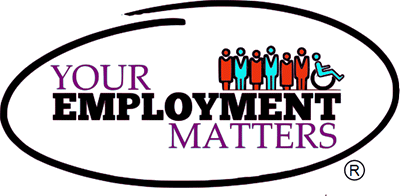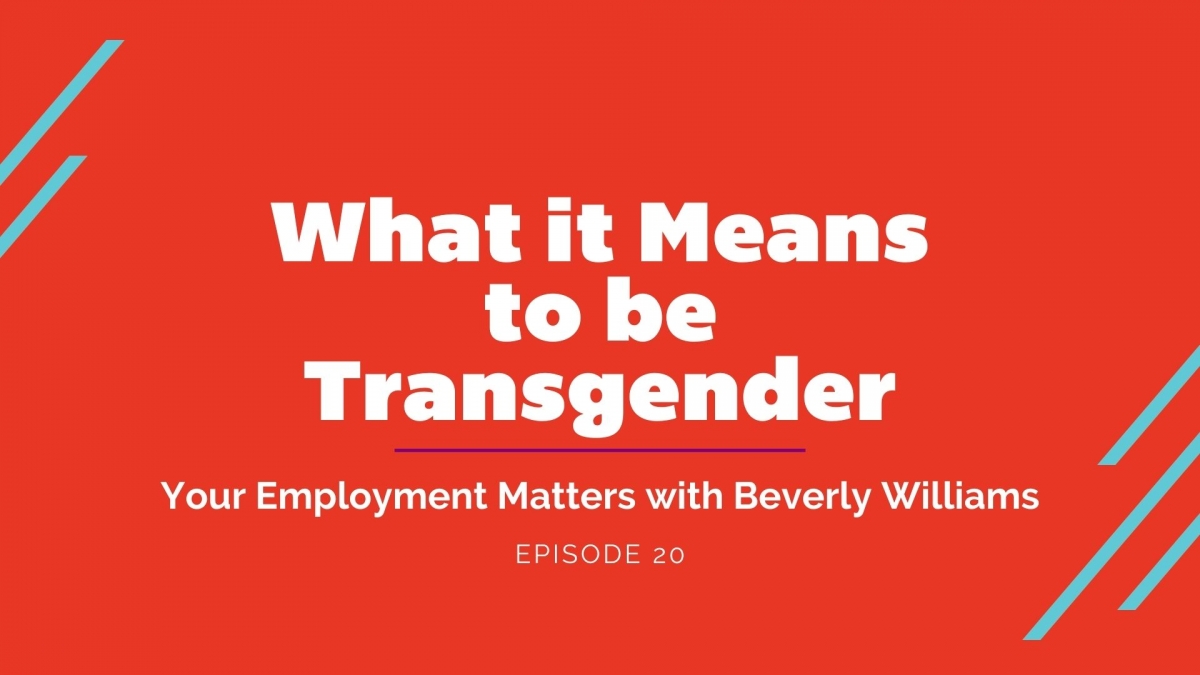What Does it Mean to be Transgender?
Beverly shares how she decided to do more to support the latest movements in furtherance of equality, respect, and civility. She is committed to doing more, saying more and mentoring those who are looking for information to better understand issues that involve differences.
According to Beverly, people looking for employment and/or career advancement should be flexible and to learn how to adapt to social and market changes. Open, civil, respectful discussions is one way Beverly believes we can acquire information and a better understanding about people, places, things and concepts unfamiliar to us.
“We need to make every effort to disregard pre-existing biases and prejudices. We must keep an open mind about things that we don’t understand.”
Today’s guest is Ash. He’s family. Ash transitioned last year and generously shares his story.
Ash knew as a young girl that she was attracted to women. She identified and came out as a lesbian. Things still didn’t feel right. He was not comfortable with his body or his name (then Elayne) and was dealing with serious depression.
It was clear that something needed to change. Ash got help. Here are a few of the steps that Ash explains in detail in this episode.
- He reached out and talked to his mom who was supportive.
- To further address emotional and psychological concerns Ash also went to a psychologist who could offer comfort, safety, and education. This is when he realized there is nothing wrong with him. He is who he is meant to be.
- Ash educated himself on what it meant to be transgendered and realized that it was time to embrace who he really was.
- Ash felt that he had to hide who he really was in part to protect his family even though it made him feel like less of a person. He didn’t want anyone to feel shame or be embarrassed.
- Being black as well as transgendered created even more worries as Ash made his transition.
Beverly explained that she wants to be supportive and be informed. She (like many people) don’t want to offend, but aren’t always sure of the right thing to do, or what terminology is acceptable.
Ash shared “you’re doing it now, you’re having conversations, and you’re being supportive.”
In many ways Ash feels that he’s just getting started. His co-workers have been supportive. They may not understand his transition, but they want the best for him and he was recently promoted.
If someone listening has questions or needs help, Ash wants to be a resource. You can contact Beverly for an email connection.
Related Posts
- Navigating Generational Dynamics in the Workplace ( April 16, 2024 )
- Building a Better Workplace through Unions with Richard Hooker, Jr. ( April 1, 2024 )
- Applying Collaborative Law Principles to Employment Challenges ( March 25, 2024 )
- Navigating Labor Management Relations and Career Strategies ( March 12, 2024 )
- Overcoming All Odds and Achieving Success ( February 5, 2024 )
- Navigating Labor Laws and Labor Relations with Dean Burrell ( August 25, 2023 )
- Transforming Pain into Purpose with Christine Macdonald ( August 16, 2023 )
- Jen Hardy interviews Beverly ( August 9, 2023 )
- Empowerment and Embracing Change with Pastor Frank Legette ( August 2, 2023 )
- Aligning Values, Amplifying Performance: Lessons from Paul Teasdale ( July 18, 2023 )

